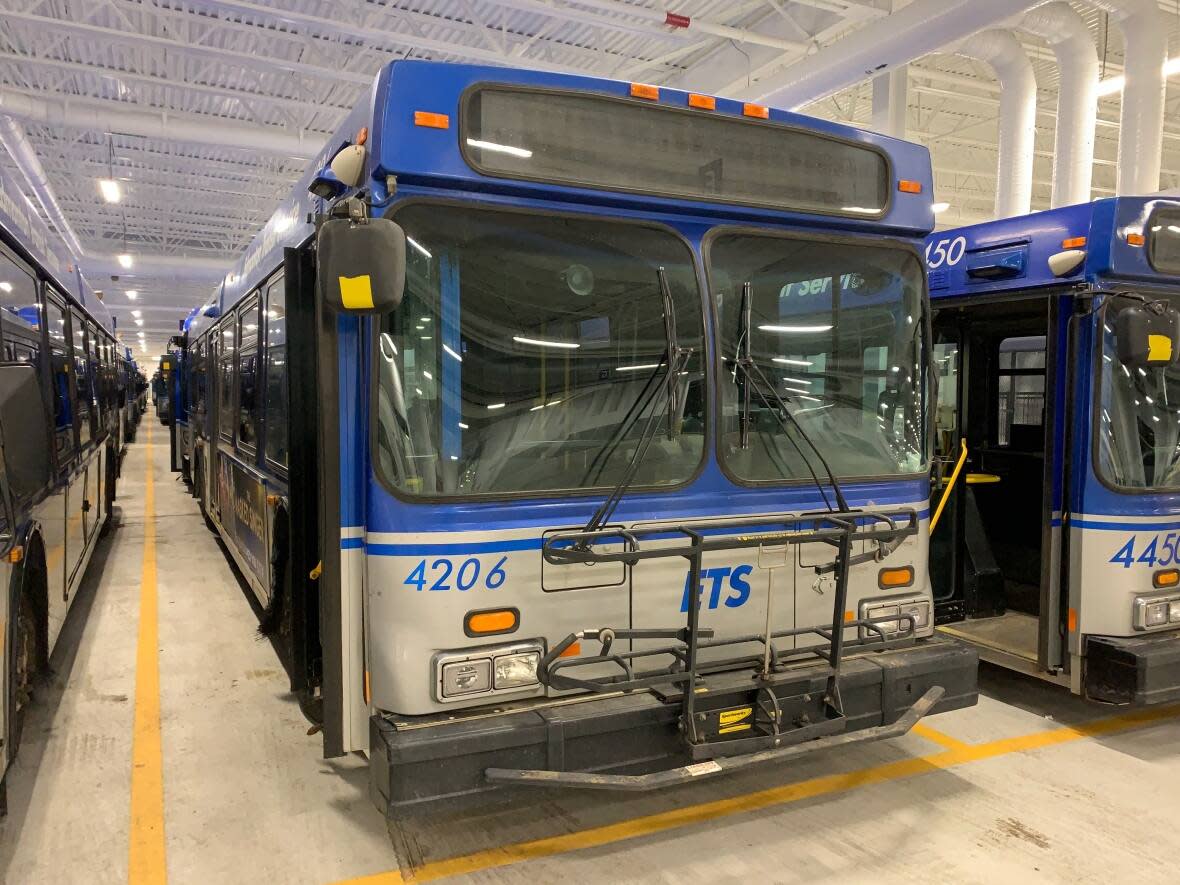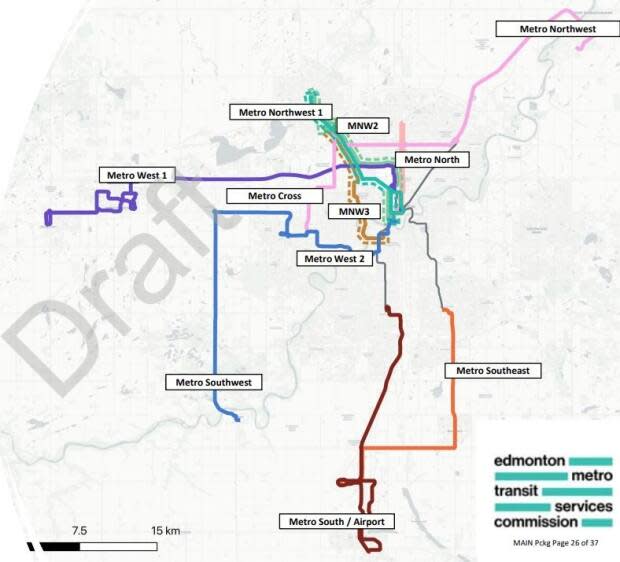Regional transit plan crumbles after Edmonton decides not to fund first phase

A regional public transit plan for Edmonton and surrounding areas is in serious trouble after Edmonton city council decided on Wednesday night not to fund its first phase.
During budget debate Wednesday, council voted 8-5 against Coun. Andrew Knack's motion to provide $13 million in annual funding for the Edmonton Metropolitan Transit Services Commission (EMTSC).
Routes would have linked Edmonton, Fort Saskatchewan, Spruce Grove, Stony Plain, St. Albert, Leduc, Beaumont and Devon.
"We've worked long and hard for many years to put this together and it was supported by the provincial government with significant money to make this happen and, quite honestly, I was somewhat taken aback," Wes Brodhead, chair of the EMTSC and a city councillor in St. Albert, told CBC News Thursday.
Coun. Aaron Paquette called the regional model "aspirational and wonderful" but said he was worried it would not provide Edmonton taxpayers value for their money.
"This may not be the time for it just yet," Paquette said during Wednesday's meeting.
Coun. Jo-Anne Wright, who also voted against the motion, called the commission an "extra layer of red tape."
Councillors Tim Cartmell, Sarah Hamilton, Karen Principe and Jennifer Rice joined Knack in voting to fund the plan.

Steve Bradshaw, president of Amalgamated Transit Union Local 569, said from the union's perspective, city council made a wise decision.
"It promised to save money and it has cost more and more and more money all the way along," Bradshaw said.
He said Edmonton already has a regional transit fare system with the Arc card, and the city could build on that without spending money on a CEO and commission.
Brodhead pushed back on that idea.
"History has shown that's been tried before and it didn't work," he said.
Last year, Leger surveyed 1,219 people in Edmonton and surrounding municipalities about public transit and a regional transit system.
Four in five respondents said they thought integration was a good idea but the majority of respondents said they rarely or never use public transit. Respondents in the ring communities were least likely to think public transit was valuable to their communities.
Devon also out
Brodhead said efforts to form a regional network have been in the works for more than a decade.
Initially, 13 municipalities were on board with the idea, but that number has dwindled. Strathcona County, the second largest municipality in the region, walked away in 2020.
Devon town council voted to withdraw from the commission on Dec. 12 — largely because of inflation and rising RCMP costs, said Justin Janke, a communications co-ordinator for the town.
Janke said Devon wanted to help students and young adults get to Edmonton LRT stations via transit and passed a motion to inquire if the town could become a member in good standing while paying a smaller contribution. That may not be possible, given Edmonton's decision.
"There's definitely a sense of disappointment throughout our whole office here and council," he said.
In a statement, Leduc Mayor Bob Young said he respects regional partners' "difficult decisions made to support the needs of their communities."
A spokesperson for St. Albert said the city needs time to determine how Edmonton's decision will affect its participation. Mayor Cathy Heron tweeted that she was heartbroken about the decision after working on the plan for years.
"We entered into agreements in good faith and lack of understanding of the long term benefits was its downfall," Heron said.
Knack said though the city will save some money by not funding the plan, dissolving the commission could cost the city up to $15 million.
"I can't imagine the other regional municipalities are going so say, 'yeah, let's all share in the cost to dissolve' when we're the only ones that actually said no," he said.


